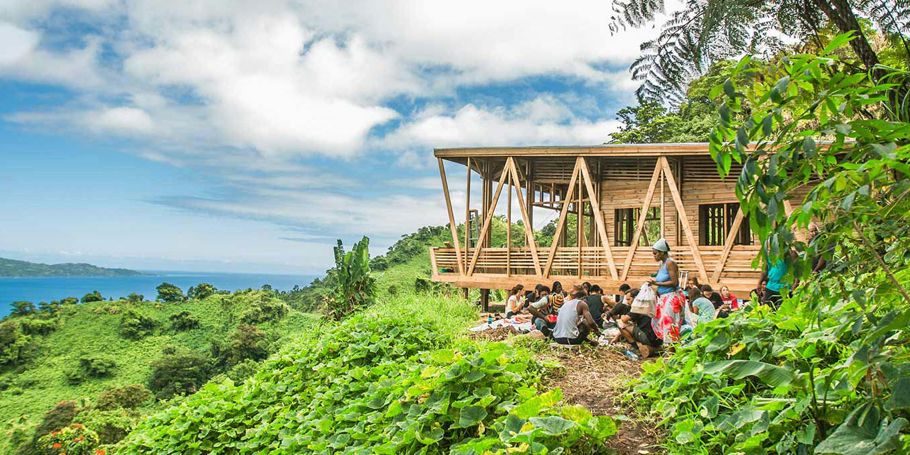Community-led solutions for informal housing in Rasulabad
ROOH x Arup Rasulabad pilot

The Rasulabad informal settlement in Surat, India, is home to over 4,000 people. Homes here are self-built using low-cost, readily available, second-hand materials like cement-corrugated sheets, tarpaulin and plywood. These materials make construction straightforward, but the houses struggle to withstand Gujurat’s hot summers and often leak or flood after heavy rain – putting residents’ lives and health at risk.
Now Arup is helping to develop more resilient, low-carbon, affordable homes for Rasulabad. Working with Roof Over Our Heads (ROOH) – a women-led campaign that supports people living in informal settlements – and other partners, we held a pilot community workshop to ideate how we tackle the problem. This brought together engineers, architects, community leaders, and local stakeholders to explore potential roofing options with residents of Rasulabad. Supporting local people to lead the design process themselves, we enabled the participants to arrive at technically sound, culturally appropriate solutions to improve their housing conditions.
Using our skills to help vulnerable communities
At Arup, we believe everyone should have a safe and affordable home. This is a key priority in our community engagement programme, through which our people use their technical and professional expertise to co-create solutions in partnership with underserved communities such as Rasulabad informal settlement. Our team has seen first-hand during previous work with Rohingya camps in Bangladesh how those living in informal housing are particularly vulnerable to the effects of climate change, which exacerbates existing social and economic inequalities.
To maximise the impact of our efforts in Rasulabad, we agreed with ROOH that this pilot workshop would focus on roofing materials. Many roofs in Rasulabad are made from galvanized iron sheets, which have a number of drawbacks: homes can become unbearably hot during periods of extreme heat; although the sheeting is waterproof, rainwater can still enter the home where the roof meets the walls; and the sheets allow very little natural lighting or ventilation.
Empowering residents to lead the design process
Only local people can determine whether a solution is truly viable in practice. So, guided by ROOH’s principles, all the ideas and designs we put forward had to be:
- Affordable
- Adaptable
- Accessible
- Available
- Acceptable
At the two-day workshop, which was conducted in Hindi and Gujarati, our engineers and designers outlined fundamental principles of heat protection, cross ventilation, refraction techniques for lighting, and the use of sealants and tarpaulins to withstand regular rainfall. With substantial numbers of women in attendance, the participants included those who spend the most time in the home as well as local engineers and masons working in construction. Our team worked to build the group’s capacity for self-reliance and resilience, so they can better manage their environment and improve their living conditions.
Using a participatory approach, everyone worked together to understand the properties of low-cost, locally available materials. These included cardboard, fabric, plastic sheets, banners, galvanised iron sheets, tarpaulin, coconut husks, egg cartons, glass wool, and sealant. The group then assembled and tested prototype panels that combined different materials – experimenting with lifting and manipulating the panels. This combination of traditional techniques and engineering principles ensured that the co-designed solutions were technically sound and, crucially, buildable in Rasulabad.
Instilling confidence in practical, relevant solutions
Following the workshop, feedback from community members showed that they had confidence in the approach, saying that it was both practical and relevant to their needs. Many were eager to adopt and adapt ideas from the workshop and apply the knowledge they had gained.
This pilot also demonstrated the importance of sustained support after a workshop, without which initial enthusiasm can fade. Our work highlighted the need for ongoing commitment based around a sixth principle: Adoption. This could pave the way for the approach to be adapted and scaled for similar settlements in India and beyond, contributing to the global effort to create more equitable and resilient cities.
As we continue our work with ROOH, we aim to expand the impact of the Rasulabad pilot, improving and building on what we’ve already achieved. Our goal is to ensure that even more people can access affordable, resilient, and safe shelter.
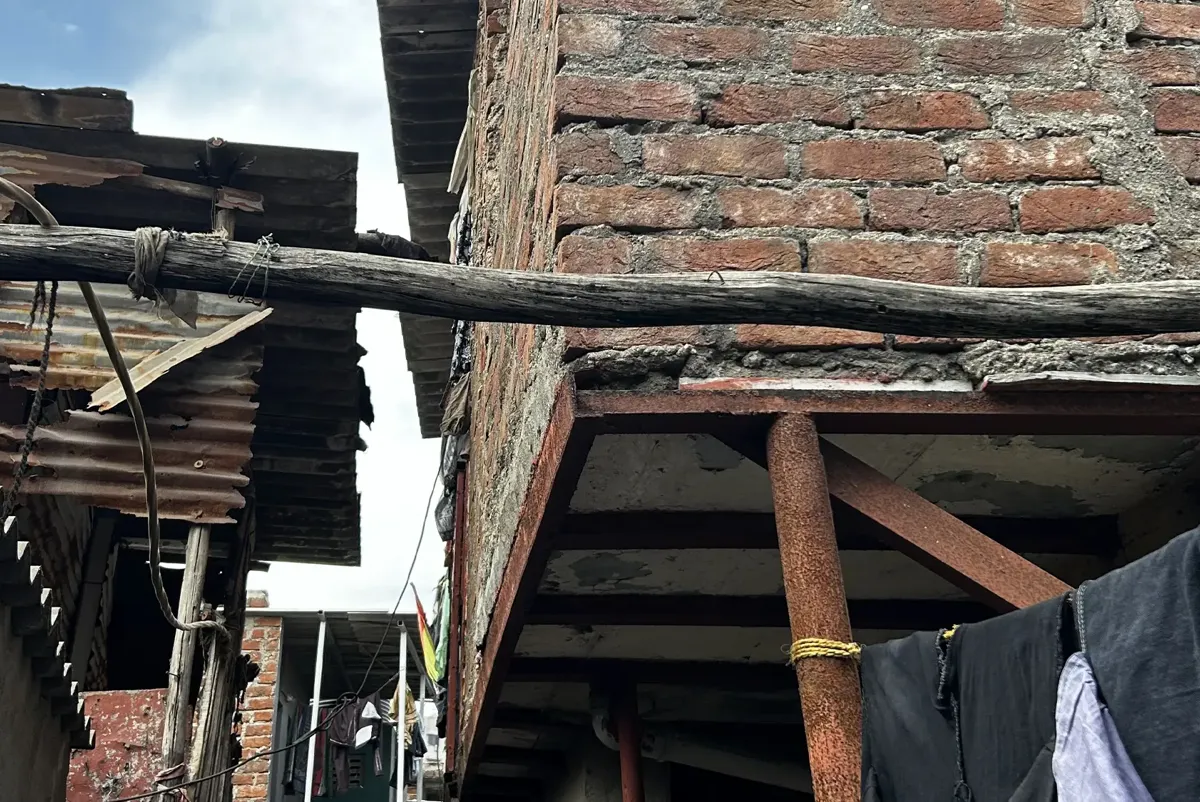
A typical home in Rasulabad
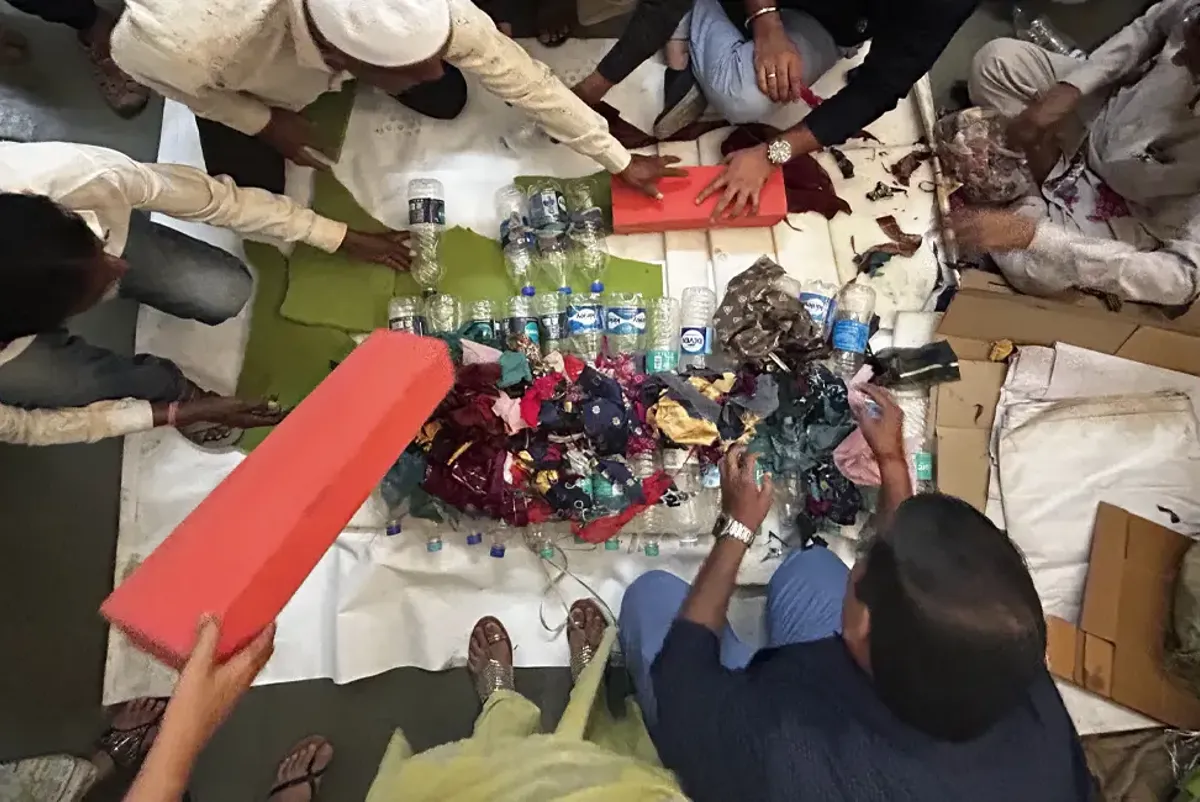
The two day workshop explored the properties of low-cost readily available materials including cardboard, plastic bottles and fabric.
I’ll rebuild the roof of my own house with this new panel and see how well it works for the community. I’m happy to be the first one to test it out. With my 20 years in construction, I want to help other masons understand this and see how we can use it to make things better.
Sheikh Khalil
local mason
What we delivered
-
A community-led workshop that identified practical, scalable solutions
-
Evaluated locally available materials, examining their properties, cost and ease of use
-
Shared our engineering knowledge and experience with residents to build their skills
Get in touch with our team
Projects
Explore more projects
Accelerating the next generation of modular data center design
Flexnode, USA
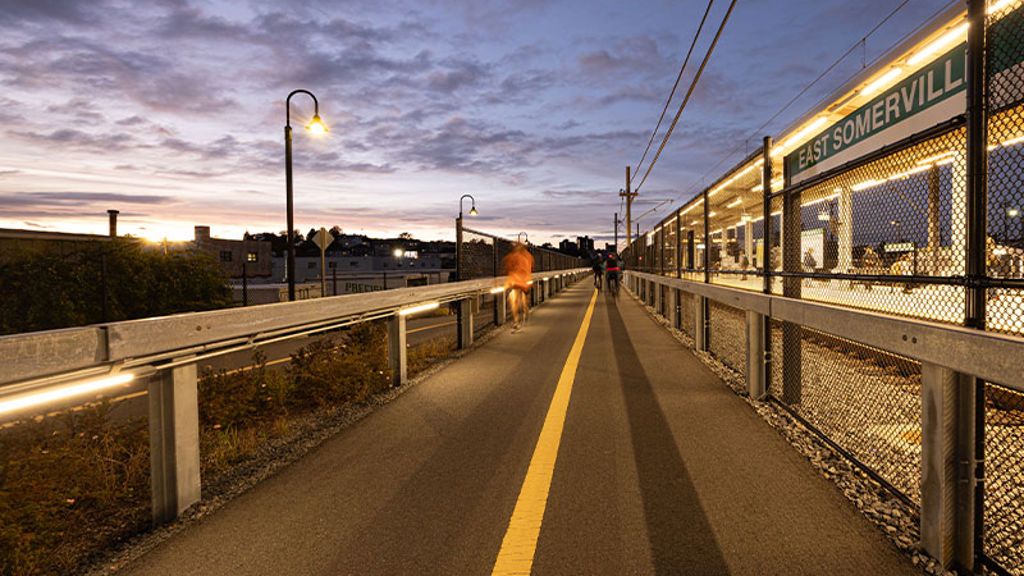
Illuminating a community path for the nighttime safety and enjoyment of pedestrians and cyclists
Somerville Community Path Lighting, USA
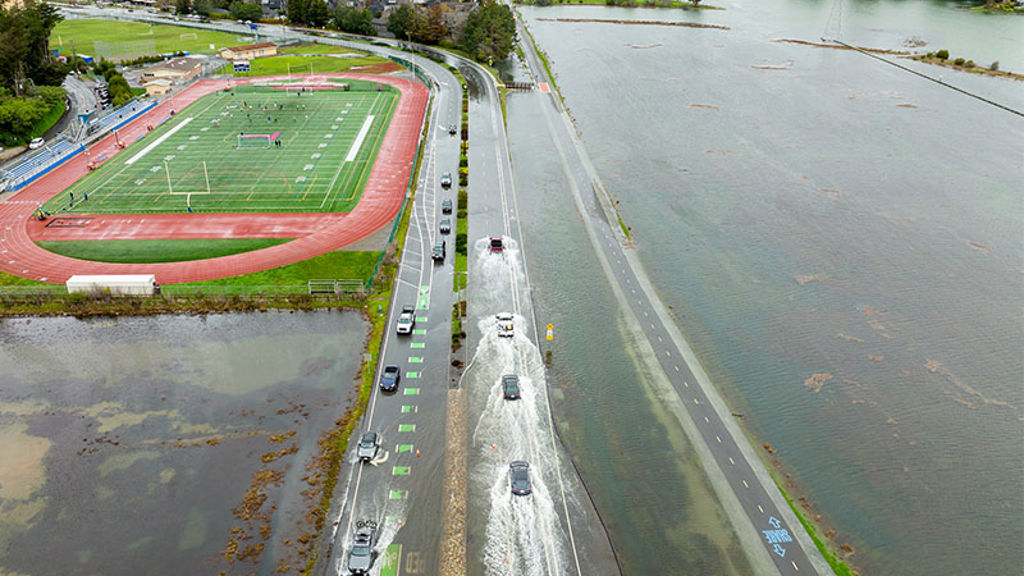
County-wide adaptation strategy to protect a critical Bay Area transportation corridor from sea level rise
Marin County Sea Level Rise Adaptation Study, USA

Designing an advanced medical device manufacturing facility for health monitoring
Dexcom Trinity, Malaysia
Get in touch with us
Last year we worked with 200+ organisations ranging from international NGOs and local governments to community interest companies and local community organisations. If you would like to find out more or get involved, please get in touch.
